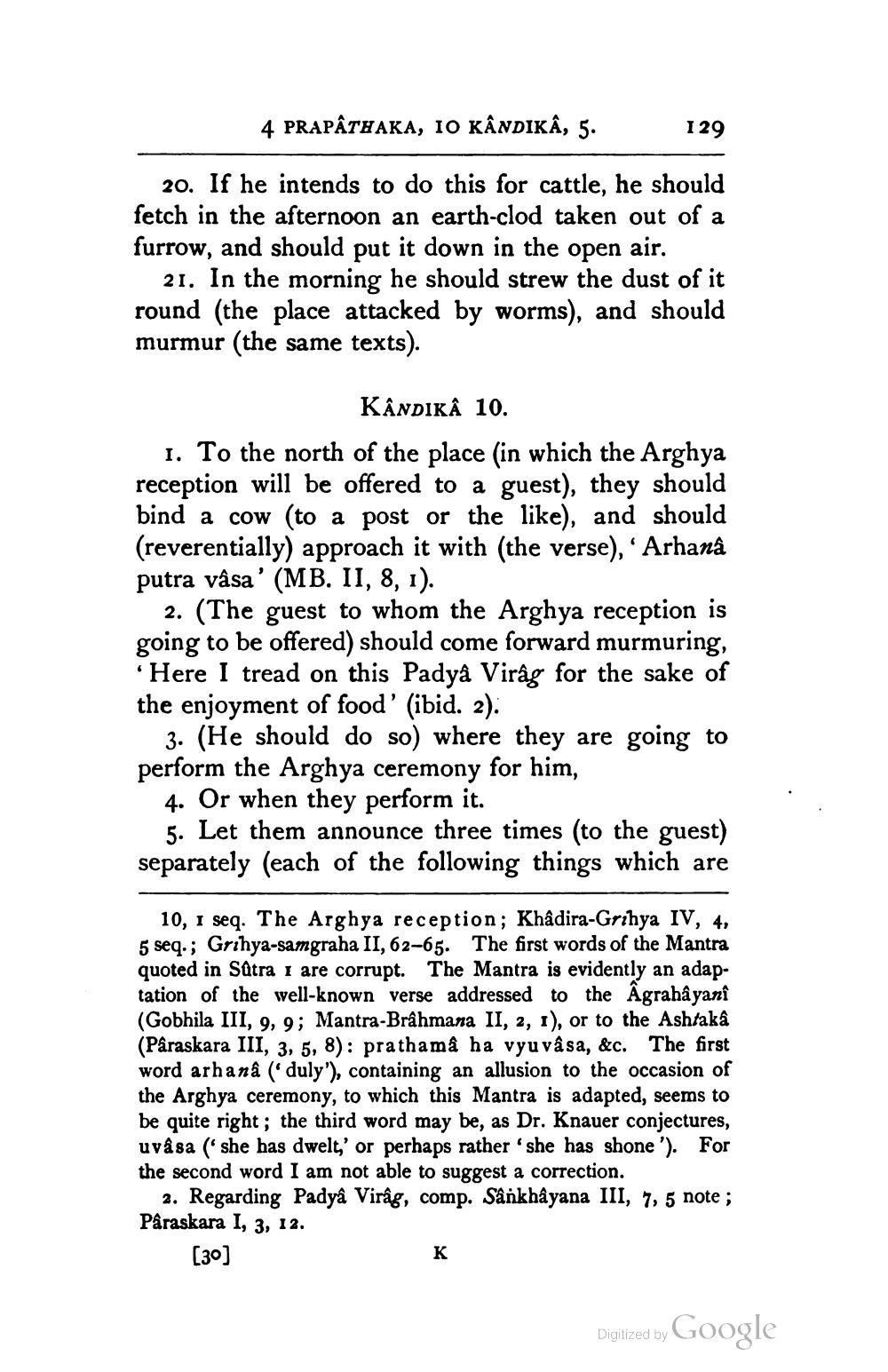________________
4 PRAPATHAKA, 10 KÂNDIKÂ, 5.
129
20. If he intends to do this for cattle, he should fetch in the afternoon an earth-clod taken out of a furrow, and should put it down in the open air.
21. In the morning he should strew the dust of it round (the place attacked by worms), and should murmur (the same texts).
KÂNDIKA 10.
1. To the north of the place (in which the Arghya reception will be offered to a guest), they should bind a cow (to a post or the like), and should (reverentially) approach it with (the verse), ' Arhana putra vâsa' (MB. II, 8, 1).
2. (The guest to whom the Arghya reception is going to be offered) should come forward murmuring, • Here I tread on this Padyå Virág for the sake of the enjoyment of food' (ibid. 2).
3. (He should do so) where they are going to perform the Arghya ceremony for him,
4. Or when they perform it.
5. Let them announce three times (to the guest) separately (each of the following things which are
10, 1 seq. The Arghya reception; Khâdira-Grihya IV, 4, 5 seq.; Grihya-samgraha II, 62-65. The first words of the Mantra quoted in Sätra I are corrupt. The Mantra is evidently an adaptation of the well-known verse addressed to the Agrahayanî (Gobhila III, 9, 9; Mantra-Brâhmana II, 2, 1), or to the Ashtaka (Paraskara III, 3, 5, 8): prathamå ha vyu vâsa, &c. The first word arhana (duly'), containing an allusion to the occasion of the Arghya ceremony, to which this Mantra is adapted, seems to be quite right; the third word may be, as Dr. Knauer conjectures, uvåsa ( she has dwelt,' or perhaps rather she has shone'). For the second word I am not able to suggest a correction.
2. Regarding Padyâ Virág, comp. Sankhayana III, 7, 5 note; Paraskara I, 3, 12.
[30]
Digitized by Google




